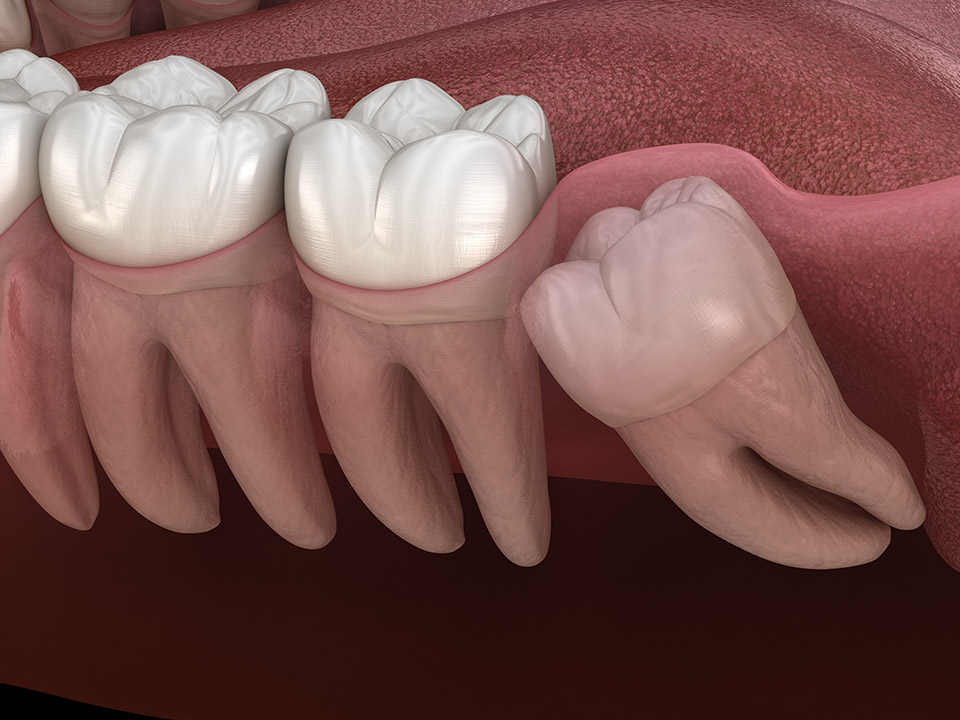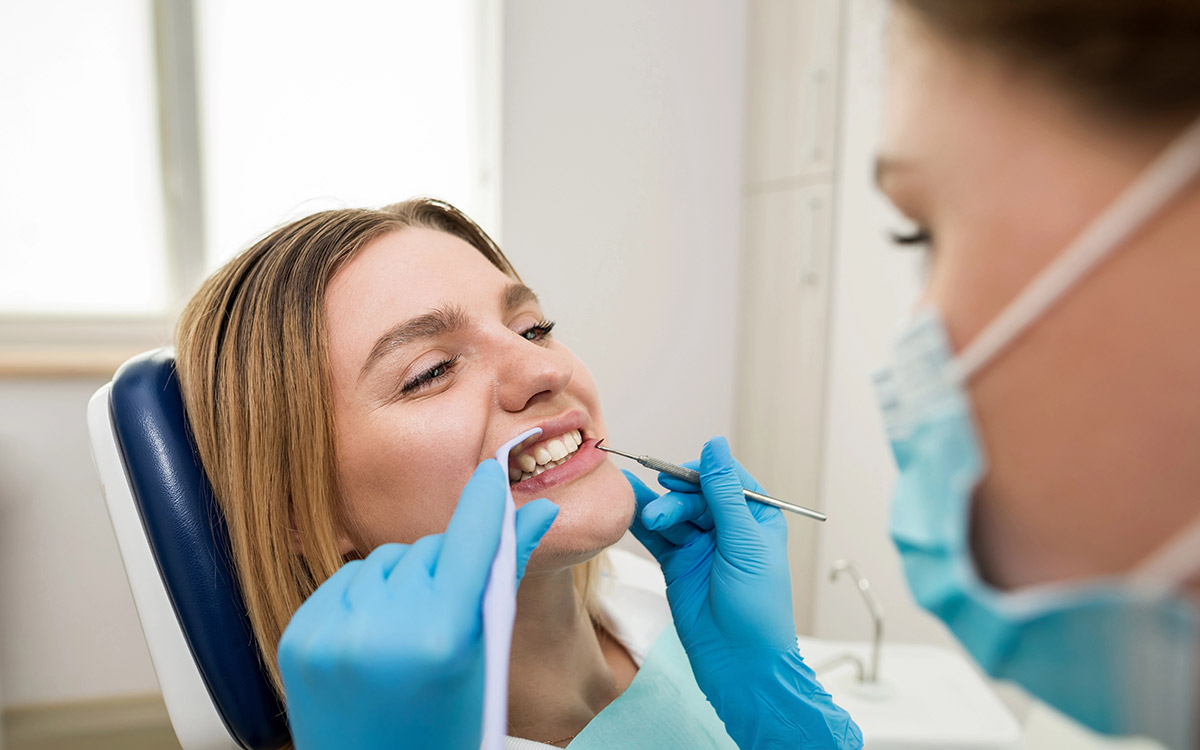The third molars (the innermost teeth on each side at the top and bottom) are called “wisdom teeth”. The term is thought to have been used as the teeth appear between 17 and 25 years when a person enters adulthood and is “wiser.” The removal of wisdom teeth can have a substantial impact on the oral health and overall well-being of your life.
Wisdom teeth removal can reduce the risks of infection, eliminate pain, reduce the risk of decay and improve oral health. However, before the procedure, some considerations may be required for wisdom tooth removal. This article will highlight some of the considerations for a wisdom tooth removal.
What To Consider for Wisdom Tooth Removal
Indications
Indications or reasons for wisdom tooth removal are commonly in tooth decay, infection, periodontal disease or damage to surrounding teeth. However, others may simply want to remove a damaged tooth, incorrect dentition location, tooth mobility (tooth staggered in different directions), provide access to tumour-like cells and remove a baby tooth.
Other patients may also want to prevent future dental problems by removing wisdom teeth while they are younger. However, specialists disagree on whether it is necessary. The process removes non-problematic teeth. However, predicting how wisdom teeth will impact oral health is a challenge.
Oral Health
Before tooth removal, an oral surgeon must inspect your oral health and ensure that you do not have any active infection or uncontrolled gum disease.
Poor oral health can increase the risk of complications post-wisdom tooth removal, resulting in poor outcomes. If any active infections or gum diseases are discovered, it is advisable that they first be resolved before tooth removal can occur.
Overall health
Like most surgical procedures, patients undergoing surgery are advised to be in good enough health to withstand the procedure. Being in poor overall health, for example, an immunocompromised state from cancer treatment, may leave one highly susceptible to post-removal complications.
Medical history
Being older than 25 years is associated with an increased risk of developing dry sockets. Additionally, it is easier to remove wisdom teeth in younger patients as the roots are not fully formed, and the surrounding tissue is also softer and less prone to nerve or tissue damage.
Additionally, alcohol and tobacco use has been linked to an increased risk of complications. This is likely due to how they slow wound healing and affect circulation. Patients with a history of chronic conditions or acute illness may need special attention before the scheduled appointment.
Possible contraindications
There are no absolute reasons a dentist can refuse to extract your tooth. However, some illnesses may require postponing the procedure. Common contraindications are conditions that may require therapeutic care.
For example, patients with vascular conditions, renal failure, cardiovascular complications, acute disease of the kidneys, liver or blood, severe anaemia, coagulation dysfunction and respiratory infections may need to postpone the procedure until the condition is managed.
Additionally, wisdom tooth extraction in the 1st and 2nd trimesters in pregnant women may have to wait till after birth.
Informed of risks
Like in any medical procedure, surgeons should inform patients of any risks that are associated with it. Before wisdom tooth removal, surgeons should fully inform patients of the risks associated with the procedure, even though some are rare. Knowing the risks allows patients to be prepared before making the decision.
Additionally, oral surgeons can educate you on preventing related complications, such as dry sockets and infection. Scientific publications cite possible complications associated with wisdom tooth removal as dry socket (alveolar osteitis), nerve injury, infection and post-operative bleeding.
A dry socket is the most common complication and occurs when a blood clot fails to develop or becomes dislodged from the empty tooth socket leading to aches or throbbing pain. Nerve injury is rare and involves injury to the trigeminal nerve leading to pain, tingling sensation and numbness in the teeth, gums, chin, lower lip and tongue.
The damage is temporary, lasting only a few weeks. However, it can be permanent, resulting in sensation problems.
Type of anesthesia
Using anesthesia during tooth removal is common as it increases comfort during the procedure. Patients may want to discuss the type and delivery mode beforehand to ensure they know all the available options and post-removal considerations.
For example, some types of anesthesia may take a few hours to completely wear off, meaning that patients may have to arrange with another adult to take the home post-removal.
Additionally, some patients may have past adverse reactions to certain types of anesthesia though these are typically quite rare. Patients should also note that anesthesia can be administered as a local anesthetic, moderate or deep sedation or general anesthesia.
Proper instructions on pre- and post-extraction care
During the preparation for wisdom tooth removal, patients should discuss pre- and post-removal care with their healthcare provider. Knowing the proper care required before and after the removal will reduce the chances of developing related complications such as dry sockets or infection.
Failing to follow the proper care, for example, not eating solid hours before the procedure, can result in complications while under anesthesia. Similarly, patients should avoid solid foods post-removal for a certain period. Therefore, you may need to stock soft foods and juices before the procedure.
Costs of care or insurance
You should consult your surgeon before removal to discuss the cost and contact your insurance provider to see if they will cover the costs. Insurance companies have different policies on covering cosmetic dental procedures. Therefore, ensure that you are covered before the procedure.
Overall
Wisdom tooth removal can be carried out because of various factors such as tooth decay, infection, crowding, periodontal disease or damage to surrounding teeth. It is vital to be adequately informed on considerations surrounding the procedure.
There are several considerations for wisdom teeth removal, such as oral health, overall health, medical history, anaesthesia, indications and contraindications. Our professional care providers can educate you further on these factors and answer any questions you may have. Contact us if you are considering the procedure, and book your appointment today.







